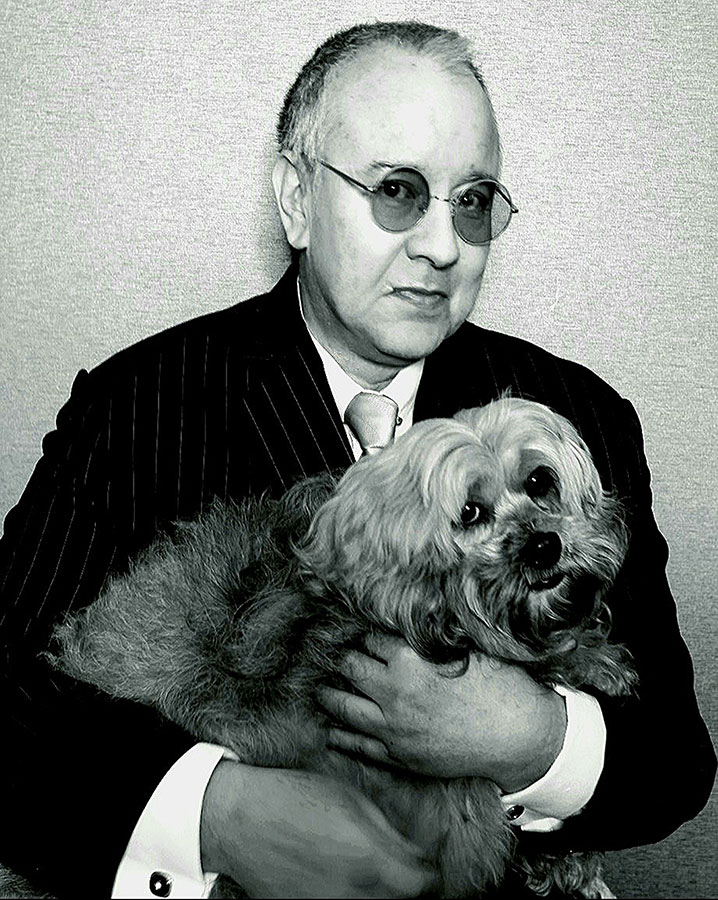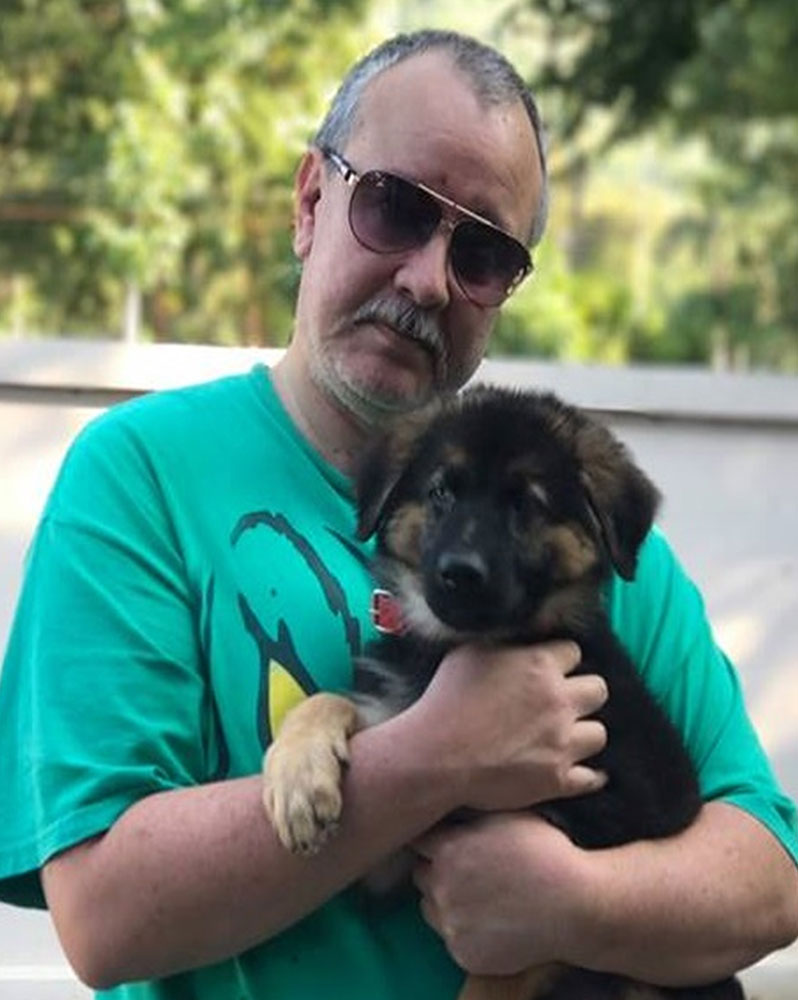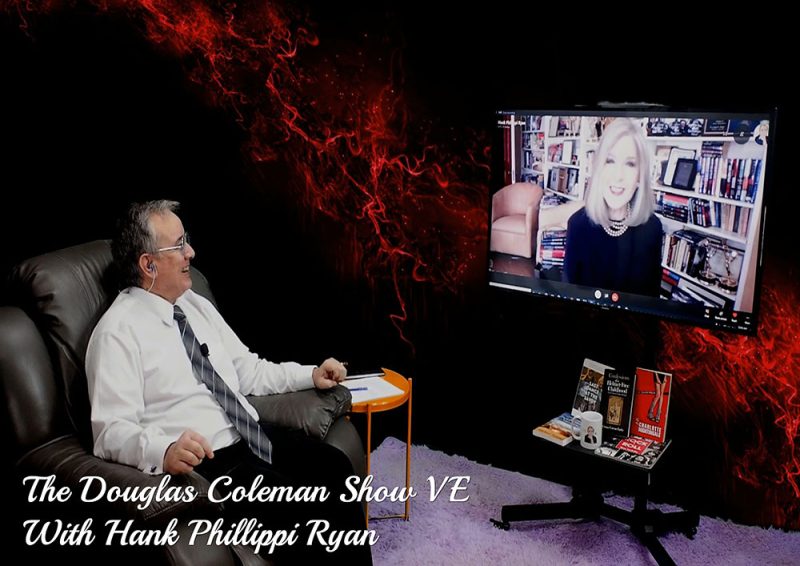As a teenager, Douglas Coleman dreamed of following in the steps of his idols like The Beatles and Billy Joel. However, just as Coleman was beginning to see some initial success with his band, fate intervened. After taking a life detour, it would be decades until Coleman began playing music consistently and even then, he would leave the business world and spend time living and working in southeast Asia.
In 2015, Coleman launched DJC Music & Production and hasn’t looked back. Not only is Coleman exploring his music side and releasing tracks, he has a syndicated radio show and YouTube show reaching people around the globe.
Douglas, you dreamed of playing music for a career but opted for a job in the business world. What led to this decision and what industry did you pursue in the business world?
I grew up in the Boston area and when I was 18, I was accepted to attend The American Academy of Dramatic Arts in New York City. While I was studying acting, I answered an ad in The Village Voice newspaper from an established band that was seeking a fourth member who was a singer/songwriter and one that could play piano. I auditioned and we hit it off, everything just clicked. We started to perform in small clubs and events around the NYC area and eventually attracted some interest from a record label. We were a bit of a unique band in that we had three strong lead singer/songwriters and half of our musical set was composed of original material, while most bar bands at that time were doing all cover tunes. As time went on, we were thrilled that when performing, people were requesting our original material more often than the cover songs. Eventually, I left the American Academy and pursued the band full-time.
You played in that band in New York City early in your music journey. After gaining a small following and making waves, the band broke up. What issues did the members have that led to the break up and change of career course for yourself?
During this time, my father became quite ill and I had to return home. He subsequently passed away after a battle with cancer. The band had its usual fights and disagreements but at that moment, we were strong and doing well. I had to leave the band due to my father’s health.
Strong persuasion from my mother changed my course and I began working a “real job” at a large, publicly traded corporation. Although the money and benefits were very good, I found myself being just another cog in the wheel of industry and feeling like the character in that film Joe vs. the Volcano. I knew someday I would return to my passion for music but I didn’t want to play the starving artist role again either.
In those 20 years, the music industry had been turned upside down with the advent of the Internet and digital technology. When I did finally return to music, I was starting all over again at 44-years old.
While some individuals would live in regret over leaving the music industry, Coleman does not live with remorse. Coleman knows the long, difficult road the music industry presents and understands the only constant is change. After 20 years in the business, Coleman found himself moving full-circle and back in music.
Do you ever look back on those days long ago and think what could have been had the band continued?
I suppose if my father had not become sick, if I had stayed in NYC, if we only could have had more money to buy equipment and a better van to haul everything around in, if, if…. I don’t really look back. So many things changed around that time, not only in my life but in the music industry in general. MTV was just starting out, shifting music from audio to video and then digital technology was coming and the Internet was about 10 years off. The music business is a difficult road to follow no matter what. Technology hasn’t made it any harder or easier. It’s the same game, just a different board.
What led to you leaving the business world and following your music dream?
Twelve hour days, hour-long commutes, driving in snow, ice and bumper to bumper traffic for 20 years, and feeling completely unfulfilled as a human being. I had had enough. I needed to get back to music before I got too old to be able to do it and lost my soul completely. I left the job, Boston and for a couple of years, even left the United States, moving to Thailand to teach English for two years. When I returned, I settled in Las Vegas and set up a small music recording studio and began to record the songs I had written while in Thailand. Thailand is a magical place for one to regain one’s connection to their soul.
An interesting side note, during my 20 years working in the corporate world, I wrote two songs. During my two years in Thailand, I wrote 25 songs. Working in a large corporation for me wasn’t very conducive to creativity. Once I got my demos recorded, I started to shop them around and was lucky enough to attract the attention of legendary UK music producer Stuart Epps. Stuart has produced four of my tracks to date.
From Coleman’s desire and dream to write, record, and play music once more, he developed a company in 2015. DJC Music & Production now has Coleman’s undivided attention as the former nine-to-five businessman pursues a dream that was put on hold for over 20 years.

In 2015, DJC Productions was formed. What was the catalyst behind the company’s formation?
Starting a small music company seemed to be the logical way of stepping back into the music business. DJC Productions came out of DJC Music and is now one company called DJC Music & Productions.
The Douglas Coleman Show was born in 2015 as well. What led to the creation of the nationally syndicated radio show and what can listeners expect from it?
The radio show started as a response to me wanting to promote my music and other indie music artists. As I was looking for avenues to promote my music, I was working with a PR firm that was booking me on podcasts and radio shows, doing interviews etc. Some of these shows were great and some were not so great. I thought I could probably do a show myself and use the show to not only promote my music but other artists as well.
The Internet has created this incredible environment of DIY. The radio show grew to include indie filmmakers, screenwriters, authors, stand-up comics, actors, and basically anyone in the entertainment industry.
We have produced to date over 500 podcasts and 200 VE (video edition) shows. We have had a large variety of guests ranging from the famous to the not so famous and all those in between, multi-millionaires to “starving artists.” We’ve covered them all. Listeners can sift through our huge backlog of shows on YouTube, IHeart, Spotify and many other platforms. My style, if you will, is reminiscent of the people I grew up watching and listening to. I prefer conversation to interviews. Johnny Carson and Dick Cavett are my heroes. Although conversation is something we all can do, not everyone can do it well.
Radio has changed greatly in the last 20 years. What were the challenges of establishing a radio show and getting it out to listeners?
Yes, indeed radio has changed. Traditional terrestrial AM/FM radio has lost a lot of ground to online and podcasting. Our show used to be on AM/FM radio but we felt that most people were listening online and we left that format to concentrate our efforts online. Attracting listeners is an ongoing process. As the technology has made it easier for anyone to do a radio show, the amount of content out there is overwhelming. The market is so completely saturated with media that marketing has become more vital than ever. Even great content and production values require a lot of marketing and promotion to be seen these days. I think the days of great content selling itself are over.
Coleman is a product of his influences. The singer/songwriter can call upon musical influences from some of the biggest recording artists of all-time. From The Beatles to Billy Joel, Coleman is writing music that he wants to hear.
Douglas, you have described your music as sounding like everything you listened to growing up. Who were some of your biggest influences and how did they shape your music?
The Beatles, Elton John and Billy Joel were probably my “big three” but I also love jazz. Miles Davis and Ella Fitzgerald, I’ve listened to for hours and hours. At first we all try to copy our heroes but over time, one’s own style starts to emerge from all of the mix of sounds we’ve been digesting over the years.
What is your song writing process like?
Songs tend to come to me, a lyrical phrase sometimes combined with a musical phrase. I’ve had this happen more often when I’ve been driving which isn’t always convenient. In the old days, I used to call my house and sing into the answering machine so I wouldn’t forget what I just thought of and play it back when I got home. I’ll just take that phrase and go to the piano and try building it up. Sometimes, I’ll write out lyrics and try and tell a story through some catchy phrases and then see if I can stick a tune to it. I don’t have a set formula.
Coleman’s radio show isn’t the only way listeners can hear him. He produces a long-form interview show courtesy of video. It is another great way to connect with an audience and deliver engaging content.
Can you tell us about the VE version of the Douglas Coleman Show? What is the difference between the VE and the radio show?
The audio show is just a long-form interview. We produce the audio show twice weekly, whereas the VE show is now a daily production. The VE show was born out of COVID-19. As more people were doing remote, we decided to start a virtual talk show. We borrowed some ideas from Edward R. Murrow’s Person to Person show from the 1950s and updated it. I wanted the living room-feel to make it seem like it was just two people sitting there having a conversation, rather than a recorded video conference call which all the networks are doing now. We wanted something different. We have had authors, music artists, indie filmmakers and others on the show talking about their latest projects.
Douglas, what is a day in your life
I don’t have a typical day in my life, but I usually start around 10am, wake up, drink tea, go to the studio, check emails and the schedule of the interviews I have for the day. My producer and I work remotely, so he books the guests and we share a Google calendar. On a usual day, I’ll do two VE show interviews or two audio show interviews or one of each. Ten recorded shows a week is a typical week.

What is something most people don’t know about you?
Most people don’t know that after I finish doing my interviews for the day, it’s quite possible that I won’t utter another spoken word for the rest of the day.
Can you share two of your favorite quotes with us?
“The more I learn about people, the more I love my dog.” – Mark Twain
“If God had meant computers to create music, Gabriel would have been born with an I-Pad instead of a horn.” – Veronica Collins from the upcoming TV miniseries, Mozart and the Karaoke Machine written by Douglas Coleman.
If you had the power to change just one thing in the world what would it be?
Oh, that’s a tough one. So many things are wrong in the world today. It’s Impossible to pick just one.
Is there anything else you would like to share?
My plan for the VE show is to move into a much larger studio where we could have a 50 seat studio audience, in-studio guests as well as virtual ones and feature indie music acts. The format ideally would be a hybrid between a conventional talk show like The Dick Cavett Show and one of the old musical performance shows of the past, like The Nat King Cole Show or The Judy Garland Show, compressed into a 30-minute format.
Coleman has created a production company out of the desire to leave the business world behind and do something fresh. Had Coleman not given up music and taken a “real job”, he may never have reached the success he now possesses.
The VE show continues Coleman’s vision. His interviews bring together some exciting individuals in the entertainment world. The future looks bright for the Douglas Coleman VE show as well. With plans for in-studio guests, Coleman’s timing to leave the business world for the entertainment industry was perfect.
For more information on Douglas Coleman and the Douglas Coleman Show, please visit http://www.douglascolemanmusic.com

Journalist and author. Contributor











